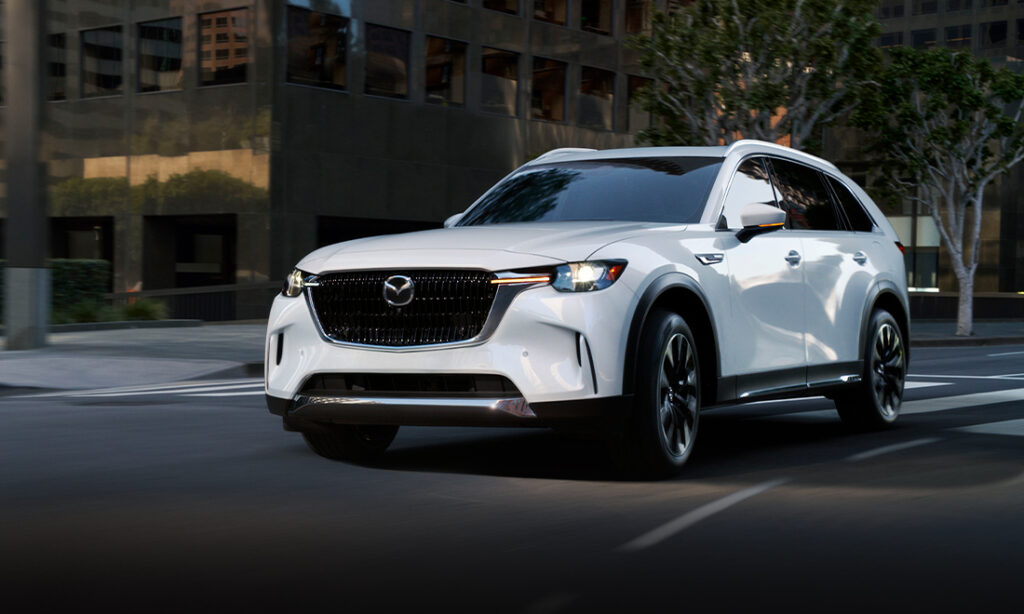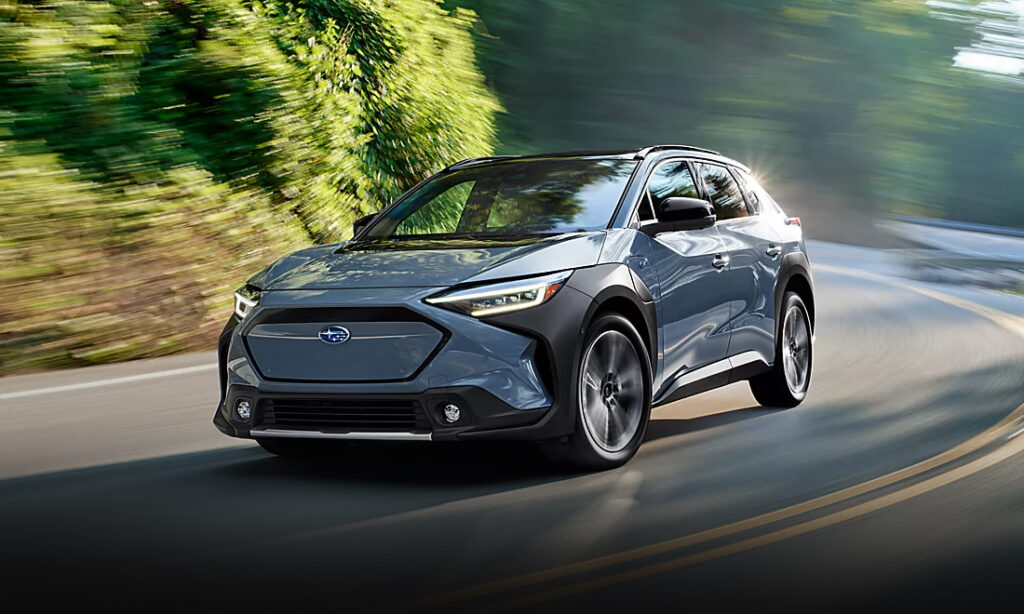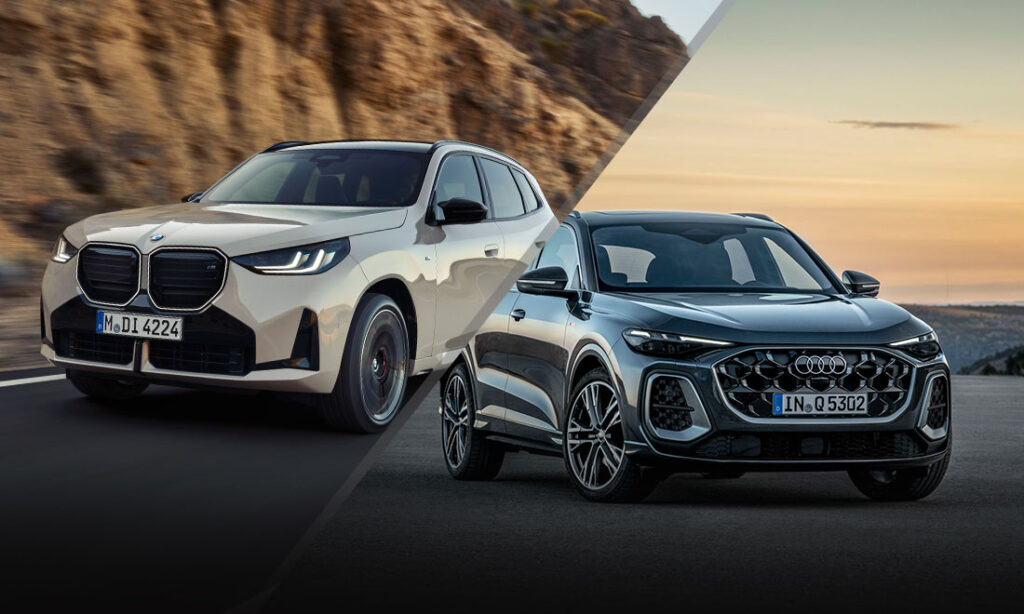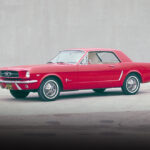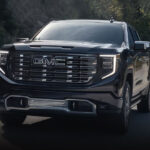The Best Fords of All Time
Decades at the top have given us legend after legend from the Ford Motor Company. These are the greatest Fords of all time.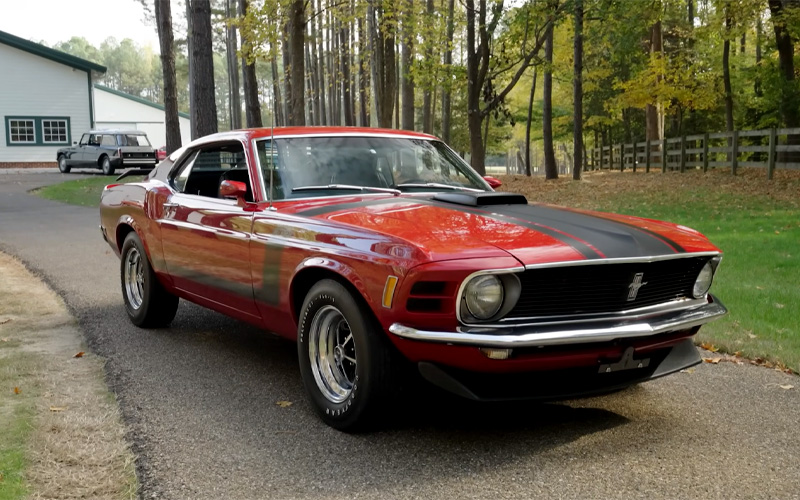
Blue Oval Ovations
The Ford Motor Company has been building cars for over 120 years. Give a car company that kind of time and they’re liable to do some important things along the way. In fact, Ford has delivered more than their share of iconic and influential cars from the Mustang to Model T. These are the greatest Fords of all time and the stories behind what makes them indelible automobiles.
Ford Mustang
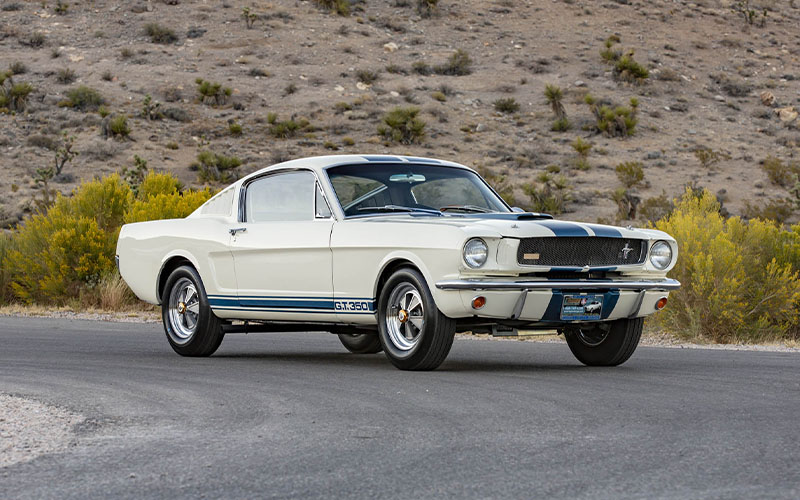
We begin with arguably the most iconic Ford of all, the Mustang. The brainchild of Lee Iacocca, the Mustang was envisioned as a sporty two-door for the masses. It quickly evolved into so much more. It was a sales sensation, moving over 400,000 units in just its first year of production. It got fast too once Carroll Shelby swooped in for the Shelby GT350 and GT500. The Boss 302 and Boss 429 homologations took the Mustang racing in Trans Am and NASCAR, respectively. The Mustang was a survivor, too. When other muscle and pony cars were felled one after the other by tightening regulations and climbing insurance rates, the Mustang soldiered on. From the Mustang II and the Fox Body to the SVT Cobra and today’s Dark Horse, the Mustang’s longevity is rooted in its ability to change with the times while retaining its core identity.
Ford F-150
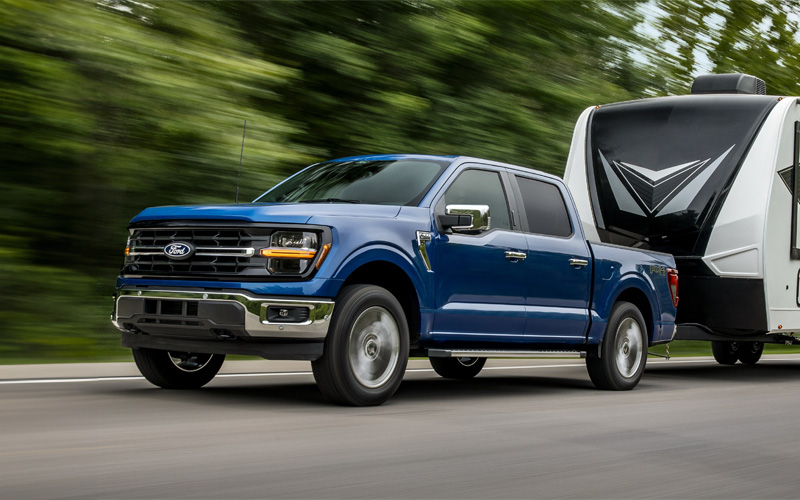
Even longer in the tooth is the Ford F-Series which can trace its ancestry all the way back to the Model TT, literally a Model T with a truck bed. This would be Ford’s approach to trucks until after WWII, tacking a bed onto whatever their basic car platform was at the time. But starting in January of 1948 the new Ford F-Series debuted with revolutionary creature comforts like a sun visor (!) and a glove box (!!). The F-Series has seen a full fourteen generations (!!!). In 1953, the F-100 debuted with its Y-block V8s, Ford-O-Matic automatic transmission, and Styleside bed. The F-150 added to the half-ton’s payload and cemented a new name in the process in 1975 (the F-100 didn’t officially bow out until 1983).
Today’s F-150 is absurdly good. It’s our pick as the best full-size pickup for good reason. The basic F-150 does all your basic truck things and then offers superlatives like best-in-segment towing at 13,500 lbs. and specialty versions like the absurd 720-horsepower Raptor R and the all-electric F-150 Lightning. The F-150 is America’s favorite truck and favorite vehicle, having surpassed the wildly popular Model T as the best-selling Ford of all time.
Ford Model T
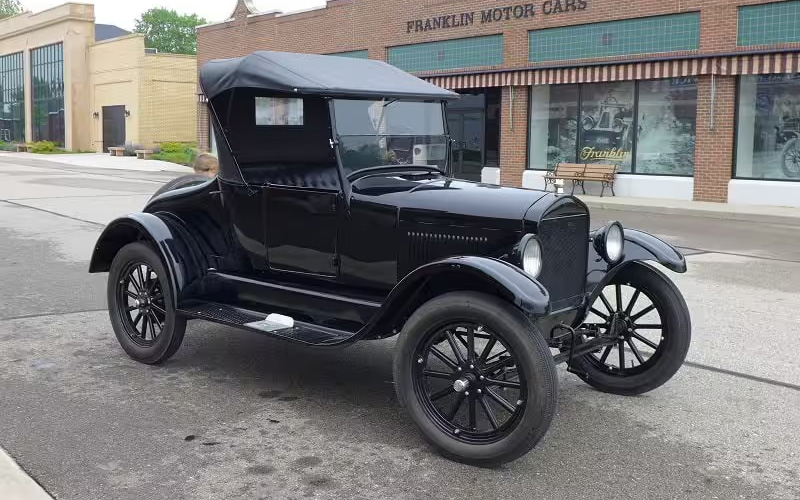
The Model T isn’t Ford’s first car, but it’s hard to argue against it being the most significant. In its nearly two-decade production run from 1908 to 1927, the Model T sold over 15 million units, holding the title of best-selling car all the way to 1975 when it was finally surpassed by the Volkswagen Beetle. Of course, the big innovation with the Model T was the advent of mass production via the assembly line. When instituted in 1913, the assembly line cut down per unit build time from 12.5 hours to just 93 minutes. The Model T was arcane by modern standards; it was started via a hand crank until an electric starter was added in 1919, and then there’s the throttle lever, located on the steering column, and a pair of petcock values under the engine used to check the oil level, to name but a few of its oddities. And yet, in its time, the Model T was transformative, taking the automobile from a plaything of the rich and well-to-do and turning it into transportation for the masses.
Ford Bronco
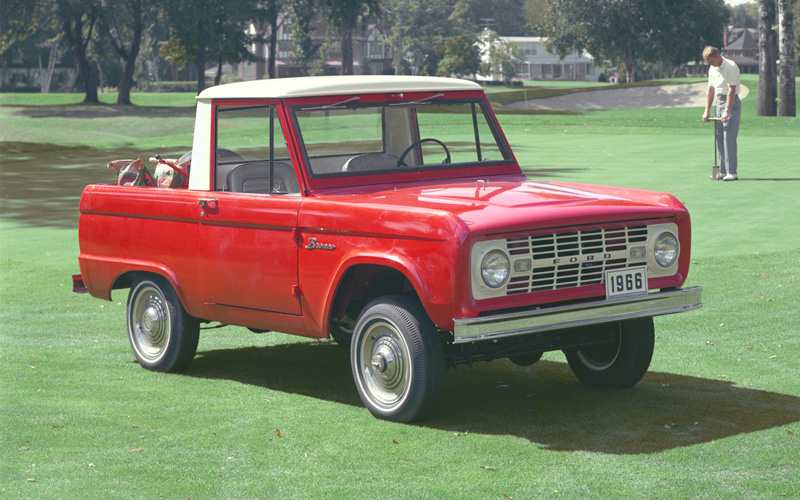
It’s hard not to love the Ford Bronco. Created in the middle-1960s, the Bronco was Ford’s answer to the increasingly popular four-wheel drive off-roaders like the Jeep, International Harvester Scout, and Toyota Land Cruiser. The first generation’s Bronco’s boxy body was slick when it debuted in 1966 and has both made it modern restomod darling (just add a lift kit and a Coyote V8!) as well as inspiring the retro stylings of today’s Bronco. Over time, the Bronco grew beefier and brawnier, until its cancellation in the mid-1990s. It made a major splash in its return from a 25-year hiatus in 2021, besting the Wrangler as the most capable out-of-the-box off-roader on the market.
Ford Thunderbird
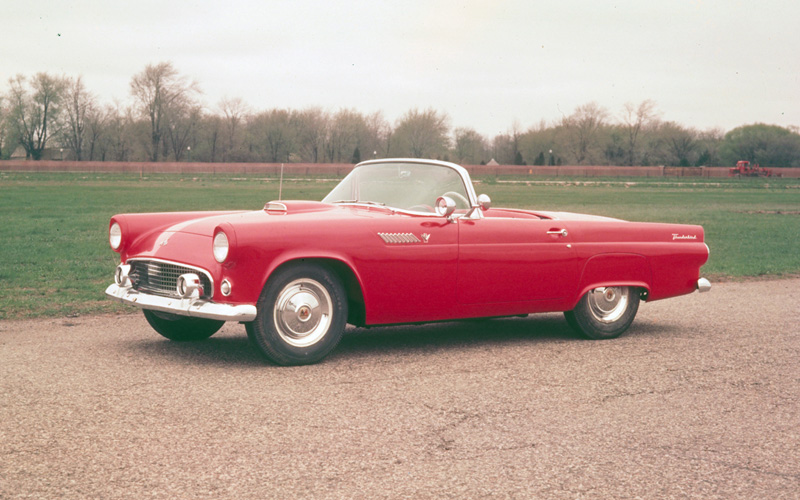
The Thunderbird is another of Ford’s long-running nameplates and single-handedly inaugurated a new segment, the personal luxury car. The first-generation car debuted in 1955 and gave the Corvette a run for its money in both style and performance. The second and third-generation Thunderbirds are paragons of Mid-Century Modern/Jet Age design. The Thunderbird evolved into an ever-larger car with ever more baroque styling. The sixth-gen Thunderbird gets the distinction of running Ford’s largest ever V8, displacing a titanic 460 cubic inches (7.5L). The Thunderbird spanned a full ten continuous generations, adding a brief and cringy misadventure of eleventh generation from 2002 through 2005. Looking back, it’s impossible to understand the business case behind semi-luxury but not exactly fast, not quite grand touring two-door cars without the first and greatest of personal luxury cars, the Ford Thunderbird.
Ford Model A
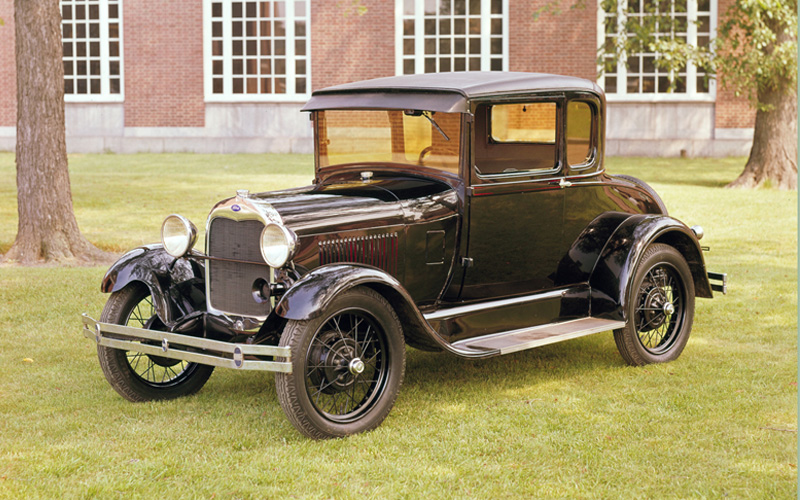
Where the Model T was Ford’s passing into the modern era of mass production, the Model A was Ford moving into the age of modern cars. The Model A, arriving in 1928, vastly improved on the aging Model T. The Model A’s four-cylinder doubled the horsepower of its predecessor, from 20 to 40 hp. The Model A had modern features like four-wheel drum brakes and wire wheels (which hadn’t become standard on the Model T until its final year of production). The Model A was heavier, lower, and had a fuller body that dispelled any of the Model T’s resemblance to the motorized carriages of old. Though its run was brief, just four years of production, the Model A sold a staggering 4.8 million units before it was replaced with the even more modern Model B/18.
Ford Explorer
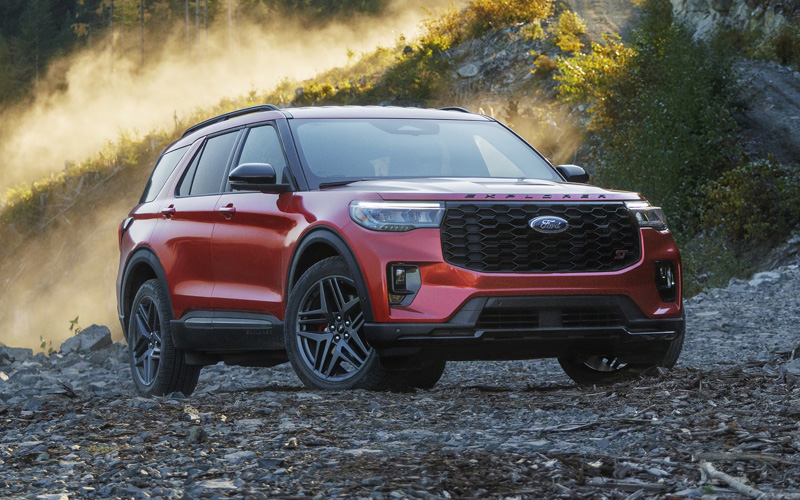
The Ford Explorer was not the first SUV, but if you grew up in the 1990s (like I did) it sure felt like it. Where the rugged Jeep and Suburban jounced and jostled, the Explorer was placid and inviting. The Explorer brought a mini-van-like sensibility to utility vehicles. It was the end-all-be-all vehicle whether you wanted to haul a boat, go camping, pick up some groceries, or the kids from soccer practice. The Ford Explorer was a smashing success right out of the gate, selling upward of 300,000 through the late 1990s and totally over 8.4 million sold over its 30-year existence.
Ford V8 Coupe
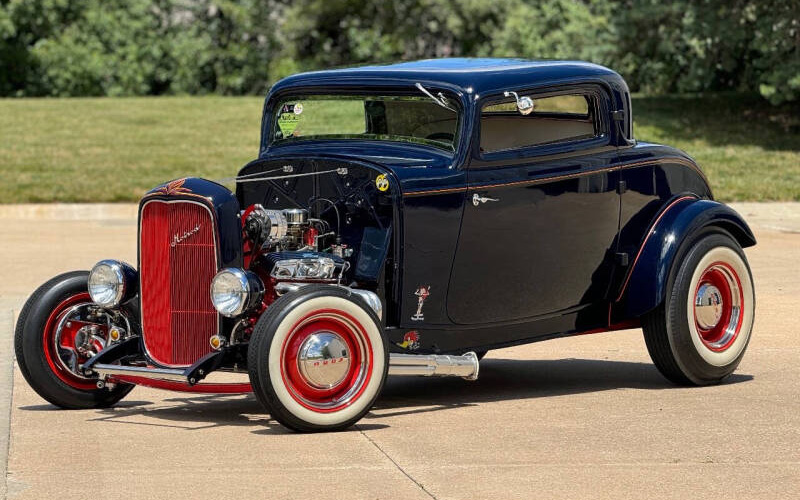
The Ford V8 has passed on from mere automotive legend and into the broader cultural firmament featuring in everything from Beach Boys’ songs and American Graffiti to the grim end of Bonnie and Clyde’s saga, and a whole lot of hot rodding in between. The Model B/18 was Ford’s follow-up to the Model A and brough the company fully into the modern age of automobiles. When Henry Ford wanted a new competitor to Chrysler’s successful V6, he looked to the V8 as his game changer. Indeed, Ford’s 221 cu.-in. Flathead V8 was a revelation, putting out 65 horsepower when it debuted in 1932. A new compression ratio and new aluminum heads netted an additional 10 horsepower the following year. The “Deuce Coupe” was the first hot rod to grace the cover of Hot Rod magazine in October of 1948, the prior nine editions had featured racecars.
Ford GT
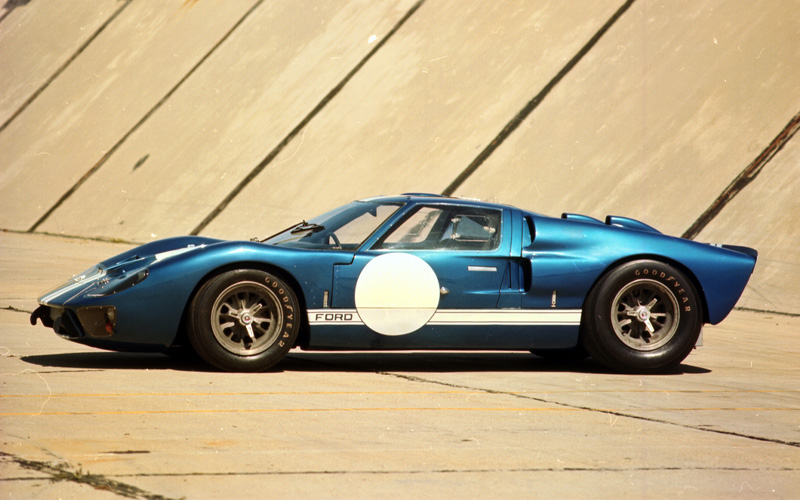
If the Ford Model T was the car of the masses, then the Ford GT was the car of the corner office manager as the Blue Oval’s one and only true supercar. Based on the Le Mans-winning GT40 racecar of the 1960s, the Ford GT evoked the original’s slip-stream styling but added a load of modern tech to produce a vehicle unparalleled in Ford’s CV. The GT spanned two distinct generations, the first from 2005 to 2006 and the second from 2017 to 2022. The first-generation car was powered by a supercharged 5.4L V8 (550 horsepower) while the second-generation car ran a 3.5L twin-turbo V6 (up to 700 horsepower). Both generations of the Ford GT were on par with the best European supercars of their day, blisteringly fast, nimble, and highly engaging to drive. The singular achievement of the Ford GT makes it an American, homegrown exotic for the ages.



